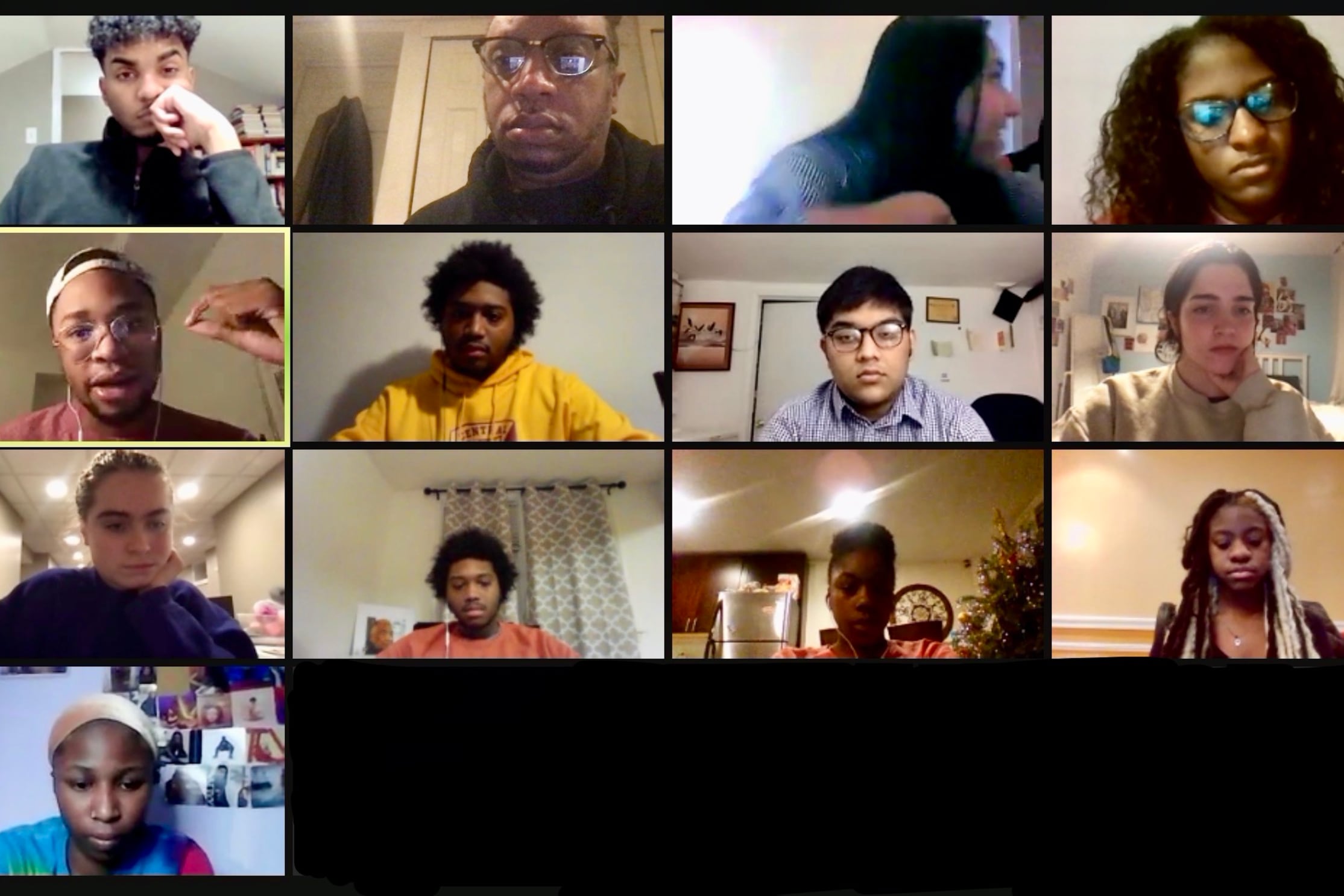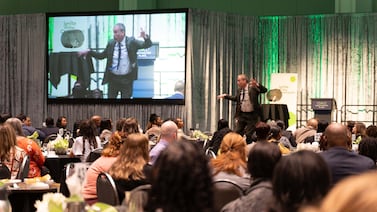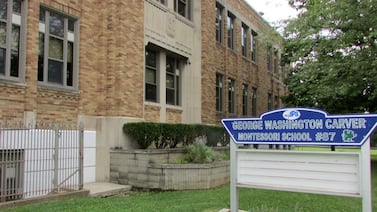Brandon Archer, a senior at Masterman High School, has accepted the fact he may never experience a prom or walk across the stage for his graduation. But he and others his age are taking issue with the Philadelphia school district’s reopening plan, calling it “rushed.”
A coalition of student leaders from a mix of schools and organizations gathered on Wednesday evening to discuss the district’s reopening plans with Chalkbeat. Their view was unanimous: The district should “slow down” the process and involve more students in the planning.
Student representatives from Philadelphia Student Union, Philadelphia Black Student Alliance, UrbEd and the Bullhorn attended the roundtable discussion.
“The district needs to be transparent about these processes,” said Archer, who is a member of UrbEd and the Philadelphia Black Student Alliance. “If we expect parents to make a decision if they are ready for their child to go back to school, we need to make sure that our parents are informed of what that entails — if it is just two days a week.”
Superintendent William Hite announced on Wednesday a reopening plan that calls for prekindergarten through second grade students to come back two days a week, in shifts, beginning Feb. 22. Staff supporting those grades will return to school buildings on Feb. 8.
Hite could not give a timetable for high school students, but stressed that the district’s most vulnerable students, its youngest learners, are at risk of falling behind.
“This isn’t just about pre-K and second grade, this is about people’s livelihoods,” said Rebecca Allen, a sophomore at Central and a member of PBSA. “The quality of the plans and resources need to be adequate.”
Samiya Smalley, a senior at Central High School, said she also was concerned about school ventilation issues. As part of his presentation Wednesday, Hite said assessments by certified air balancers have been completed in all schools to assess air flow and help determine safe occupancy levels in each room.
But questions remain stemming from the district’s past problems with buildings not meeting minimal ventilation standards.
“More than rooms, I’m concerned about all the schools being ventilated,” Smalley said.
Lola Mildr, a senior at Masterman and a member of the Bullhorn, said she’s interested to see how the district will balance in- person lessons with remote learning. Hite said families will be given the option of staying virtual if they don’t feel returning to school is safe.
“You have teachers teach two sets of students while managing students who are in person,” she said. “How will the district ensure that students are not gaining so much more resources and information than those who can’t?”
Many of the district’s students rely on using buses and subways to get to school — another concern of the students interviewed. SEPTA officials have declared their equipment is safe, but students noted that the school district cannot guarantee that those riding public transit will be in safe conditions.
Qamar Coleman, a senior at George Washington Carver High School of Engineering and Science, said the district may monitor its students but not the general public. “You can’t regulate a person on SEPTA taking off their mask.”
“Once the pandemic is over who’s to say that SEPTA is going to continue cleaning them?” asked Labiq Jaigirdar in regards to city buses, trolleys and subways. Jaigirdar is also a senior at Carver and affiliated with the group UrbEd.
Some of the students also were concerned about how the district plans to get teachers vaccinated. The district confirmed with Chalkbeat that it will advocate for teachers of prekindergarten through second grade to be prioritized for the vaccine. But due to a limited number of doses and large numbers of people in priority groups to get the vaccine, it may be weeks until teachers are able to get shots, according to the city’s health commissioner.
Hite has said several schools across the city will be used as distribution sites.
But Archer said he doesn’t want vaccine distribution to turn into a battle of which schools have resources and which schools don’t.
“If we can find an equitable way of distributing the vaccine we should pause with the reopening of schools,” he said. “We should not rush this.”
Youma Diabira, a student at Central High School and member of the PBSA realizes she is not going to get another senior year, but said she wants to speak up for the younger students in the district.
“These kids do need more support that they don’t have at home,” she said. “There are students that haven’t logged on the entire year. We need to find ways in which they are being supported as well as our faculty.”







